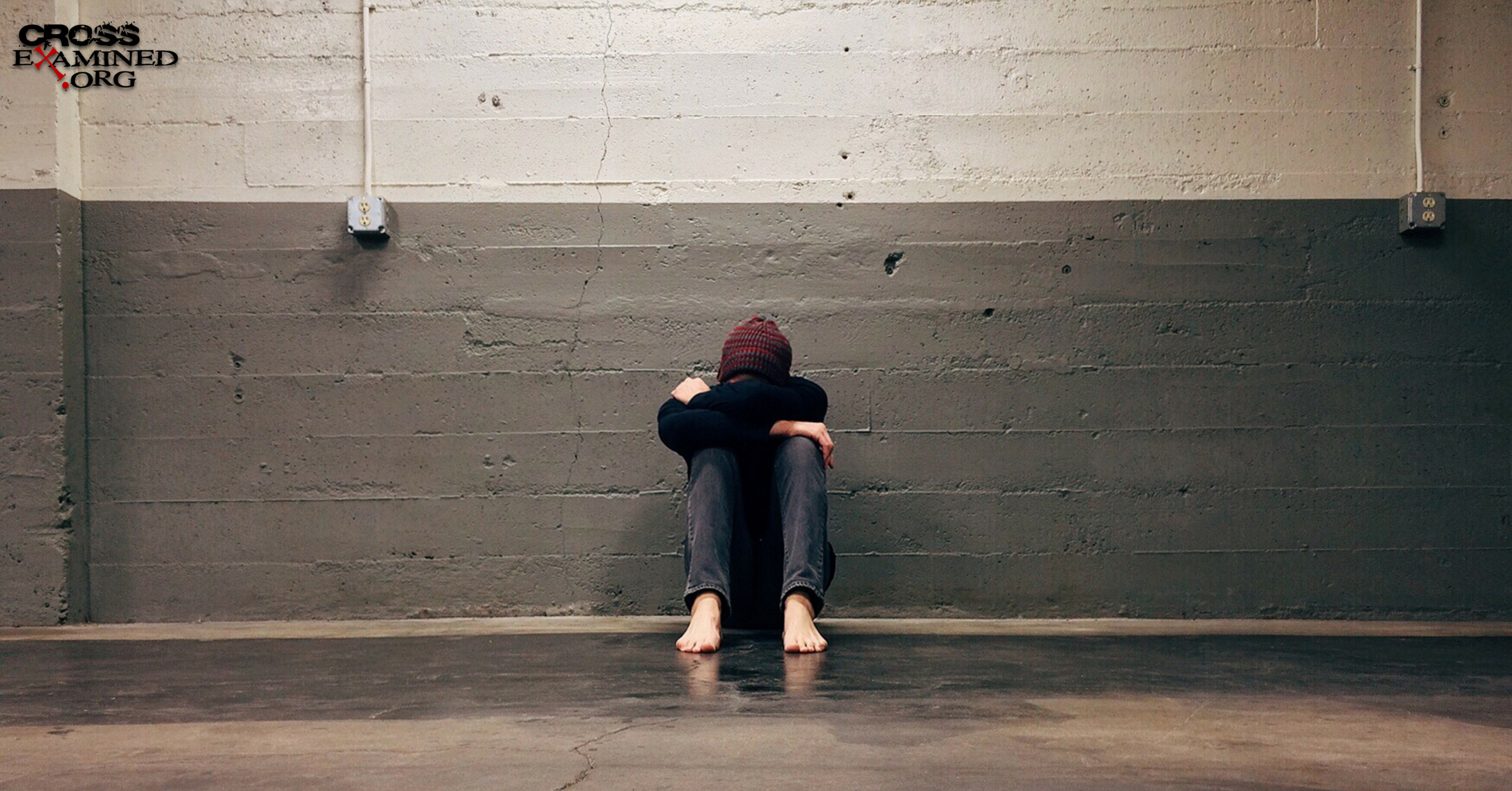On November 13, 2015, coordinated terrorist attacks rocked Paris, France: A shooting rampage, explosions, and a mass hostage-taking that leftover 100 people dead and over 300 more badly injured; people who went out to see a band, a soccer game, grab a bite to eat or just enjoy the evening. The Islamic State claimed responsibility and the media called it the deadliest attack in France since World War II.
Many around the world mourned for those who lost their lives in this tragedy. Many Christians called for prayer via social media, punctuating their posts with #PrayforParis.
Still, some skeptics say prayer is nothing but an empty act of desperation or sentimentality. Like wishing upon a star. In fact, The Richard Dawkins Foundation for Reason and Science posted a “Pray for Paris” graphic on Facebook altered to read, in part, “Don’t Pray for Paris…” Why? Because of the naturalistic worldview, there is no deity who hears a thing people are praying. After all, how could God exist when stuff like this happens?
But what about this?
Does evil disprove God? In this post, I’ll share three reasons that evil and suffering in the world point us to the existence of God. First, we know objective evil is real. Second, this points us to an objective standard of goodness. And third, objective moral laws are real communications from God.
Something’s Wrong
First, skeptics who challenge the existence of God because of evil and suffering in the world have to assume that evil is real; that something’s terribly wrong with our world today. It’s pretty obvious that murder and terrorism aren’t just examples of people breaking social norms. No, these things are really, objectively wrong. Objective evil is real, and everyone knows this isn’t the way things should be.
Hit up your favorite news app or Web site, and you’ll find tons of examples of evil happening right now: stories of racism, human trafficking, you name it. But what is evil itself? What all these instances of evil have in common is that they represent a departure from the way things should be. St. Augustine wrote in The Enchiridion:
For what is that which we call evil but the absence of good?
Think about it like this. Evil is kind of like a donut hole. I don’t mean a little, bite-sized ball of dough and frosting. I mean, an actual hole that was cut out in the middle of a donut that was intended to be a solid one. And so you get a spot where there’s nothing, instead of more donut.
Kind of like this, evil is the lack of good—it’s when the good that should be there isn’t there. We all know people should be loving each other, not hurting each other. But the question is: “Where’s this idea of should come from?”
There’s no way you’re going to somehow trace the idea of should back to matter behaving according to law. But that’s basically what everything boils down to if atheism is true. No, it seems evil came as a result of free creatures using their free will badly; the total opposite of the way human beings were designed to function in a community.
“Should” Points to God
Second, the fact that we know there is a should point us to an objective standard of goodness. See, in order to even bring up this whole issue of God and evil, the skeptic has to borrow the idea of objective evil from theism; the worldview of people who believe in God. If there’s really such a thing as evil, it’s just more evidence for God.
Why? Because if you’ve got objective evil, then you’ve got to have an objective good. Not just something our culture made up, but something beyond us that actually establishes what good is—God’s own nature.
C.S. Lewis, a former skeptic, said:
My argument against God was that the universe seemed so cruel and unjust. But how had I got this idea of just and unjust? A man does not call a line crooked unless he has some idea of a straight line
An Objection to the Moral Argument
But wait. What do we say to the skeptic who challenges this idea by saying, “How can you say there are objective moral values when Muslim terrorists sincerely believe it is right to kill innocent people?”
William Lane Craig gave a good answer to this: Just because terrorists think terrorism’s a good thing, that doesn’t mean objective moral laws aren’t real. It just means the terrorist’s got it all wrong. Here’s what Craig says about terrorists:
If they sincerely believe it’s right, then they also believe in objective moral values. There’s no contradiction here at all. It’s just that we have a disagreement about what the objective moral truths are. To say that there are objective moral values doesn’t mean that there won’t be moral disagreements. Or that there won’t be moral growth as you come to see that maybe you were wrong in the past and now you have a clearer perspective on things.
Don’t confuse the reality of moral values with the knowledge of them.
To say that there are objective moral values doesn’t mean we are infallible in our moral apprehensions. I think we do apprehend objective moral values, but many times, we can make mistakes.
I think the Muslim terrorists have made a terrible mistake. And the reason is: I think they have the wrong god. The god that they think has commanded them to do this doesn’t exist. Therefore, they are terribly, and tragically mistaken. But there’s no contradiction at all here between someone believing that something is objectively right and there being objective moral values and duties.
Objective moral laws are real, and that fact doesn’t change, even if people disagree about whether or not a certain action’s good or evil.
Evil Requires a Good God
Third, objective moral laws don’t just come out of nowhere. They are a communication of one mind to another. This is totally different from some Scrabble letters that fall on the ground and happen to spell out a word. Totally different from what a Magic 8 Ball might tell you when you shake it up.
Objective moral laws have an undeniable force that you feel obligated to obey. That’s because they come from a moral lawgiver who has authority over you and me; a being whose jurisdiction is the universe he created.
In order for evil to exist, there must be an objective standard of goodness. Did you know you could have good without evil? But you can’t have evil without good; without a standard of goodness. Think about it like this: You can have a standard with nothing falling short of that standard, but you can’t have something falling short of a standard without a standard! Get it? Reminds me of an old Switchfoot song, “The Shadow Proves the Sunshine.” Objective moral laws are real communications from a good God.
Conclusion
We mourn with those who mourn. Christianity is very real about the problem of evil. This isn’t the way things should be. But the very concept of “should” points us to an objective standard of goodness: God’s own nature. Turns out, evil and suffering are evidence for God and not against him–a God who hears our prayers and to whom all people are accountable for their actions.
Original Blog Source: http://bit.ly/2KZNsrR




